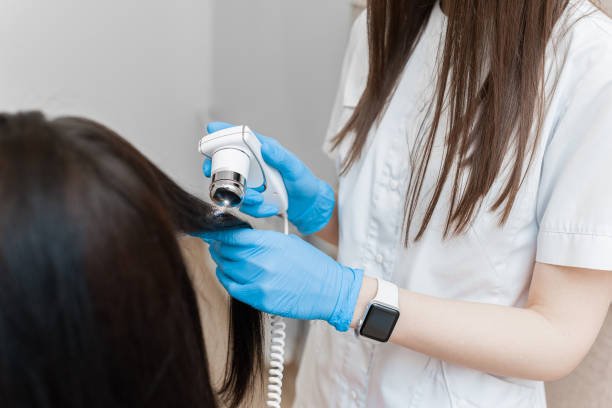Have you ever noticed how we often dismiss small health issues as “nothing serious”? Sometimes, our body tries to communicate that something is wrong — but we mistake it for tiredness, hormonal changes, or minor discomfort. This habit of ignoring early warning signs can sometimes become life-threatening.
Breast cancer is one such condition. It grows silently and may appear harmless at first, but early detection can make all the difference. The good news is that when identified in its initial stages, breast cancer is highly treatable and curable. In India, it is one of the most common cancers among women, but timely consultation with a breast cancer specialist, diagnosis, and treatment can save lives.
Let’s explore the seven warning signs of breast cancer that every woman should be aware of.
What is Breast Cancer?
Breast cancer is a disease in which cells in the breast tissue start to grow uncontrollably. It can begin in different parts of the breast, such as the milk-producing glands (lobules), milk ducts, or connective tissue.
Early symptoms may include:
-
A lump or thickening in the breast or underarm
-
Skin texture changes
-
Nipple discharge or bleeding
The type and stage of cancer determine the treatment approach, which may include surgery, chemotherapy, radiation therapy, targeted therapy, or hormonal therapy.
When detected early, the success rate of treatment and survival is significantly higher.
How Common is Breast Cancer?
Breast cancer is the most common cancer among women worldwide.
According to the World Health Organization (WHO), about 2.3 million women were diagnosed with breast cancer in 2020, accounting for nearly 11.7% of all cancer cases globally. Sadly, it also causes over 670,000 deaths every year.
In India, around 1.5 lakh women are diagnosed annually, and the numbers continue to rise. Although it’s most common among women aged 40–50, younger women are increasingly being affected as well.
Risk Factors for Breast Cancer
While breast cancer can develop in anyone, certain factors increase the risk:
-
Age: Women over 50 are at higher risk.
-
Family history: Having a close relative with breast cancer increases your chances.
-
Hormonal factors: Late menopause, hormone replacement therapy (HRT), or hormonal imbalance may contribute.
-
Alcohol consumption: Regular or excessive drinking raises the risk.
-
Late pregnancy or childlessness: Delayed childbirth or not having children may also increase risk.
Why Early Detection Matters
Early detection saves lives.
When diagnosed early, treatment is less aggressive, recovery is faster, and survival rates are higher. On the other hand, delayed diagnosis may require more extensive treatments, such as chemotherapy or mastectomy, and can be emotionally and financially draining.
That’s why paying attention to even the smallest changes in your breast is extremely important.
7 Warning Signs of Breast Cancer
Here are seven early signs you should never ignore:
1. Lump or Swelling Under the Arm or Neck
If you notice a hard lump or persistent swelling under your armpit or around the collarbone, it could be a sign of breast cancer. These lumps may indicate that cancer cells have reached the lymph nodes.
2. New Lump in the Breast
A new, painless lump in the breast is the most common symptom. It’s important to perform a monthly self-examination to detect any changes early.
3. Changes in Breast Size or Shape
If one breast becomes larger, flatter, or develops an unusual contour, it may not be just hormonal — it could be an early sign of cancer.
4. Changes in the Nipple
Nipple inversion, redness, dryness, or crusting are warning signs. These may indicate underlying changes in the breast tissue.
5. Unusual Nipple Discharge
If there is bloody or clear discharge from the nipple (without pregnancy or breastfeeding), seek medical advice immediately.
6. Breast Pain or Discomfort
Although breast pain is often linked to menstrual cycles, persistent pain or heaviness should not be ignored.
7. Skin Changes on the Breast
Watch out for dimpling (orange peel texture), redness, or thickening of the skin — these can indicate inflammatory breast cancer.
When to See a Doctor
Consult a specialist if you notice:
-
A lump that lasts for more than 2–3 weeks
-
Any change in breast size, skin color, or texture
-
Bloody or unusual nipple discharge
Timely consultation can make a life-saving difference.
How to Take Care of Yourself
-
Perform a self-breast exam once a month
-
Eat a balanced diet rich in fruits and vegetables
-
Exercise regularly and maintain a healthy weight
-
Avoid smoking and excessive alcohol consumption
-
Schedule regular screenings if you have a family history of breast cancer
Conclusion
Fighting breast cancer isn’t as difficult as it seems — the real challenge is recognizing it on time.
Every woman should listen to her body and never ignore unusual symptoms. With early diagnosis, proper treatment, and emotional support, recovery is absolutely possible.
If you or someone you love notices any of these warning signs, consult a specialist immediately.
Dr. Pooja Babbar, a leading Medical Oncologist in Gurgaon, offers expert diagnosis and treatment for breast cancer, chemotherapy, targeted therapy, and immunotherapy. Early medical advice can be your best investment in health and peace of mind.
Your health is your true strength — protect it, stay informed, and spread awareness.
FAQs
1. How can I know if I have breast cancer?
Watch for warning signs like lumps, pain, nipple discharge, or skin changes. A doctor may suggest tests such as mammography, ultrasound, or biopsy.
2. Does breast cancer cause pain?
Not always. Breast cancer lumps are usually painless, though in some cases, pain or tenderness can occur.
3. How fast does breast cancer spread?
It depends on the type and the person’s overall health. Some cancers grow slowly, while others spread quickly — that’s why early detection is crucial.
4. How can I check for breast cancer at home?
Raise your arms and visually inspect your breasts in the mirror. Then, using the pads of your fingers, gently feel the entire breast and armpit area for lumps or irregularities.
A Note of Gratitude
A heartfelt thank-you to TrickyBlogs for providing a platform where we can freely share educational health content and spread awareness to help save lives.





